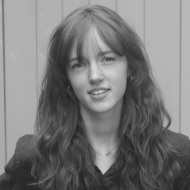Blackheath High School in Greenwich prides itself on providing ‘learning without any limits’ for its girls, by challenging stereotypes in STEM subjects and encouraging pupils to learn new skills. In 2021, 20% of its’ pupils studied physics A Level, and 55% studied science or maths A-Levels.
Deputy head and science teacher Natalie Argile is passionate about keeping girls interested in STEM. Before coming to Blackheath, she taught in mixed schools where she says the culture of boys doing certain subjects puts girls off trying them, whereas at Blackheath there are ‘just subjects’.
She says: “At a girls’ school, they don’t have that comparison. To them, we don’t have boys’ subjects and girls’ subjects, we just have subjects. And actually maths, and science and psychology are our most popular subjects a level. So I think whatever it is, we do seem to do really well.
“One of the biggest barriers is probably perception. We very actively try to counteract that all the way through the junior school, and then to seniors as well. The main thing we do is actively create opportunities to allow girls to break down the gender stereotypes.”
This approach starts early for Blackheath girls – equal opportunities and non-gendered subjects are all they know from their first day at the school. In DT the girls are taught how to weld, and regular cricket masterclasses are standard for pupils from year 2 onwards. The fact that cricket is a male-dominated sport in the real world goes unquestioned. Natalie says the school’s expectation that pupils give everything a go doesn’t get ‘challenged’. “You don’t really hear them talking too much about how something is just for boys.”
In Design Technology classes, and across all subjects at Blackheath, the approach is about ‘allowing yourself to fail’. “It’s how you get to the great ideas,” says Natalie. “Failing is part of what they do and that’s part of the design process. It’s about getting them to understand that earlier, because girls typically are less keen on making mistakes. They like everything to be perfect, write in pencil, rub it out, and so on. So we tried to get rid of that approach.”
We want them drawing pictures of women, not an Einstein-type character
She adds that it’s important to give children good female role models from a young age, when they’re already beginning to imagine what a scientist, designer, or mathematician ‘looks like’. “We want them drawing pictures of women, not an Einstein-type character.” The school has a Mary Wollenstonecraft speaker series named after the feminist and activist, with speakers talking to pupils about topics like coding, artificial intelligence, and vaccines, where women are a minority.
Blackheath exploits every opportunity to introduce more female role models, especially those working in historically male sectors, to the girls. “Highlighting and making more of them will end up altering the balance,” says Natalie. During a recent redevelopment project of the school buildings, the pupils were brought onto the building site to meet the engineers, be introduced to the one female engineer builder on the team, and learn about the project.
“We ensure there’s more female representation in our speakers and the people we talk about than there is in society, and I think that’s the only way things can change. Showing them a true representation of what it actually is would, I think, contribute to the barrier.”
But crucially, Blackheath is not anti-men. It believes in diverse thinking in all forms. “It’s really important that we’re not single-minded about things,” Natalie says. “We focus on the really positive aspects of men and women working together as well. We’re not on a ‘women taking over’ crusade. We have a wealth of really passionate, male STEM teachers who are absolutely fantastic who inspire the girls as much as our female teachers. I can’t see any downside to having diversity of thought.
“It’s about girls feeling equal to boys. We want to put them out into this world feeling able pull up the chair at a board of directors’ table, and speak their mind.”
Research commissioned by Microsoft shows that while most girls in the UK become attracted to STEM subjects just before the age of 11, their interest drops off sharply between the ages of 16-17, highlighting the importance of engaging girls in primary school. Initiatives at blackheath like coding clubs, VR lessons, and one-to-one device schemes are ‘no accident’ says Natalie.
All very well, but it irks her when STEM subjects aren’t considered creative – so STEAM week was introduced at the school. “It shouldn’t be that you have one without the other. They really need to marry up if you’re going to be successful.” At the recent school fashion week, pupils took on every element from lighting and filmography, to clothes design and creation.
Despite Natalie’s belief in diversity of thought, she can’t yet see a world in which mixed education would benefit girls more than single-sex does. Though there are some benefits to having boys around, she can “only see the benefits of girls only education, if I’m honest”.
“I definitely don’t think in my lifetime there would be need to get rid of boys- and girls-only education. Way, way, way in the future, maybe, but at the moment, with the confidence that [girls-only education] brings and the number of gender stereotypes around, there’s a definite need for girls’ education, and our girls thrive here.
“Girls coming out of a mixed school aren’t prepared in the same way for the society they’re about to enter because I think they’re less able to break down the barriers they’re going to encounter. Ours are ready to do that, they’re a little step ahead.”









